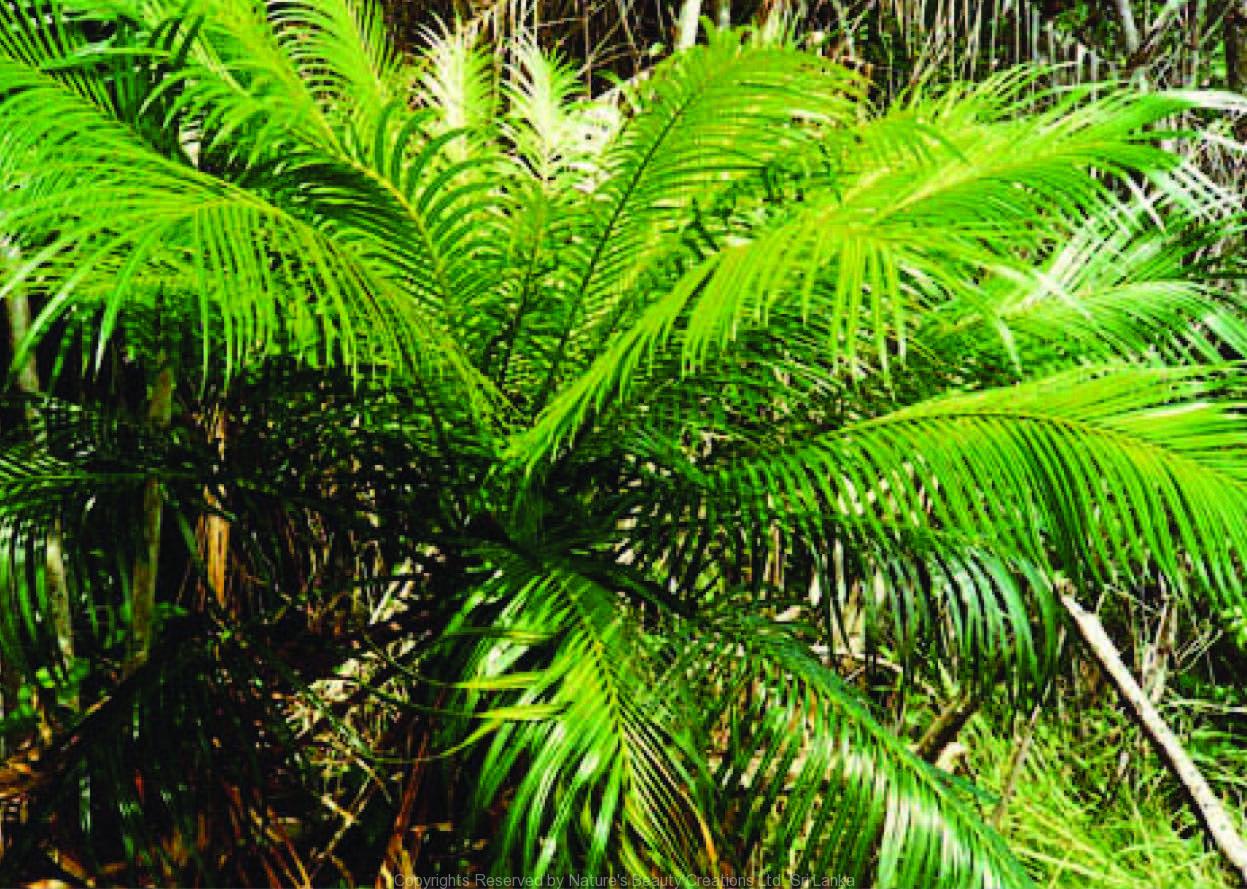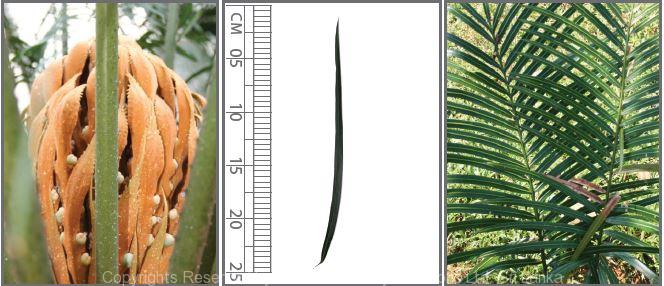

Traditional Knowledge
Useful plant parts :
Tender leaf and seed
Uses in traditional medicine :
- Food prepared from powdered seeds is taken to reduce haemorrhoids
- Tender leaves are prepared as a vegetable for bleeding piles
- Powdered roasted seeds are mixed with coconut oil and applied to wounds, boils and other skin diseases
- Juice of tender leaves is taken for flatulence and vomiting
Scientific Research
Chemical constituents:
Amino acids: α-amino-β-methylaminopropionic acid and non-protein amino acids: hexylalanine derivative, leucine, betaine, cycasin from seeds; sterol-β-D-glucosides from seed flour; bioflavonoid: mentoflavone derivative from leaf
Bioactivity :
Acetone extract of plant: antibacterial; sterol β-D-glucosides and α-amino-β-methylamino propionic acid: potential neurotoxins
Clinical:
References : Khabazian, I. et al., (2002), Isolation of various forms of sterol β-d-glucoside from the seed of Cycas circinalis: neurotoxicity and implications for ALS-parkinsonism dementia complex, Journal of Neurochemistry, 82(3), 516-528. Laqueur, G. L. and Spatz, M., (1968), Toxicology of cycasin, Cancer research, 28, 2262-2267. Leach, A. J. et al., (1988), Antibacterial activity of some medicinal plants of Papua New Guinea, Science in New Guinea, 14(1), 1-7. Li, C. J. et al., (1996), Nonprotein amino acids from seeds of Cycas circinalis and Phaseolus vulgaris, Phytochemistry, 42(2), 443-445. Moawad, A. et al., (2010), Phytochemical investigation of Cycas circinalis and Cycas revoluta leaflets: moderately active antibacterial biflavonoids, Planta Med, 76(8), 796-802. Vega, A. and Bell, E. A., α-Amino-β-methylaminopropionic acid, a new amino acid from seeds of Cycas circinalis, Phytochemistry, 6(5), 759-762.
Copyrights Reserved By
Natures Beauty Creations



